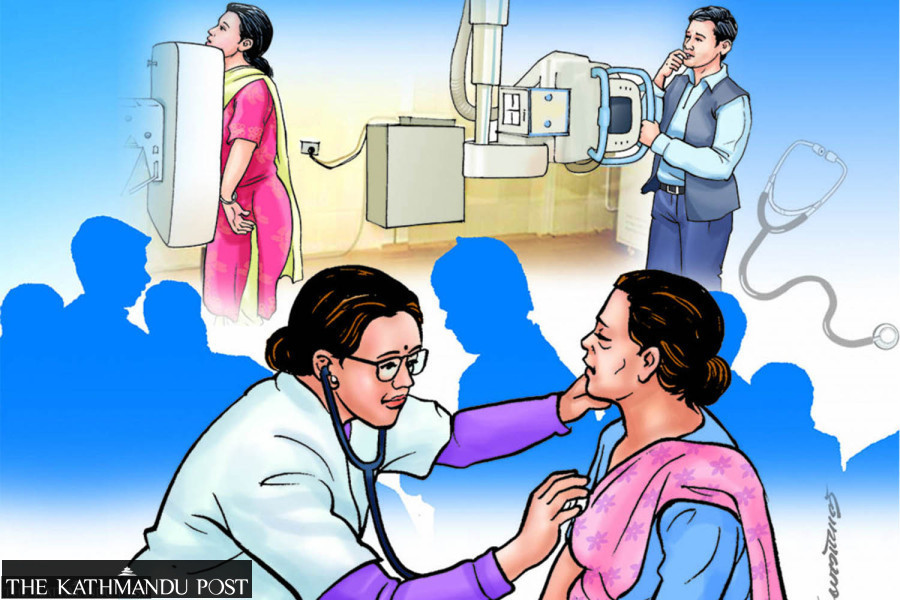Health
Month-long free screening drive for non-communicable diseases next year
Officials at the Health Ministry say free testing for hypertension, diabetes, renal function, will be available nationwide from February 13 to March 13.
Post Report
The Ministry of Health and Population is preparing to launch a nationwide campaign offering the public free screenings for certain non-communicable diseases—hypertension, diabetes, and renal function, among others—in the ongoing fiscal year.
The move aims to make people aware of the growing burden of non-communicable diseases, which account for around 80 percent of total deaths, officials say.
“As per the instruction of the health minister [Pradip Poudel], we are planning to launch a nationwide campaign to screen for certain non-communicable diseases,” said Dr Yadu Chandra Ghimire, director of the Epidemiology and Disease Control Division. “The campaign will be launched in the month of Falgun (February 13 to March 13).”
Non-communicable diseases—hypertension, diabetes, renal disease, liver problems, heart problems, and cervical cancer, among others have emerged as major killers in recent years, accounting for around 80 percent of total deaths.
According to a 2019 study on the prevalence of non-communicable diseases by the Nepal Health Research Council, 71 percent of total deaths at present were due to non-communicable diseases, and an additional eight percent of deaths were linked to injuries.
The study was primarily focused on behavioural risk factors like tobacco and alcohol consumption, as well as biological risk factors like high blood pressure, overweight, obesity, abnormal lipid levels, coronary artery disease, chronic obstructive pulmonary disease, and diabetes.
Officials hope that free screenings for non-communicable diseases will help raise awareness of risk factors and ultimately help lessen the disease burden.
“This campaign aims to make people aware of the emerging risk factors caused by our changing lifestyle, food habits, and stress levels, among other things,” said Ghimire.
Officials say that health workers will also organise outreach camps in remote areas where people must walk for hours for health screening.
“The main purpose of the free screening campaign of non-communicable diseases is to make people aware of the problems,” said Dr Pomawati Thapa, chief of the Mental Health Section at the division. “The burden of non-communicable diseases has been raised alarmingly of late, and people are seeking care only when the problems worsen.”
Early diagnosis and precautionary measures can help stop health problems from becoming serious, doctors say.
Public health experts say that it is high time to focus on non-communicable diseases, as their burden has raised alarmingly. As most people do not undergo testing unless there is an emergency, doctors say it may be too late when the symptoms surface. They say that many lives could be saved if testing of non-communicable diseases is made free.
Along with free testing, authorities must focus on behavioural changes—improvements in eating habits and physical exercises, among other things.
“Countries like ours have been facing a double burden—an alarming rise in non-communicable diseases and the emergence of new vector-borne diseases and other communicable diseases,” said Dr Mingmar Gyelgen Sherpa, former director general at the Department of Health Services. “Due to excessive use of processed foods, which contain preservatives, people suffer from multiple non-communicable diseases.”
Several studies show alarming signs on a number of issues including growing consumption of alcohol, tobacco, salt and junk food, and insufficient intake of vegetables and fruits, which lead to cardiovascular diseases. Doctors say that along with ensuring free screening and treatment, authorities concerned should focus on raising awareness about lifestyle changes and associated risks.




 11.12°C Kathmandu
11.12°C Kathmandu














